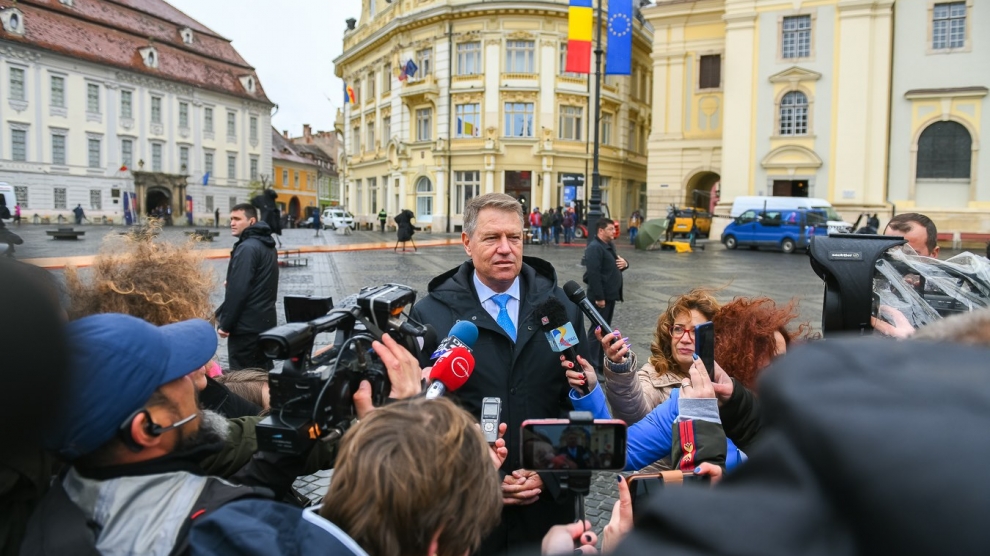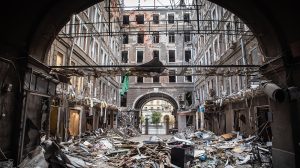Last summer, while enjoying goulash at one of the many fine restaurants on Piața Mare, the main square of the Transylvanian city of Sibiu, my daughter quite innocently asked: What currency do they use here?
She appeared to be under the impression that we (who live in Bucharest and were visiting Sibiu for a weekend break) had left Romania.
It’s an easy presumption to make.
Unlike Wallachia and Moldavia, the two other historic principalities which make up modern Romania, Transylvania was for the best part of two centuries an integral part of the Habsburg Empire. The Habsburg legacy is everywhere, from the Germanic and Secessionist architecture which dominates Transylvania’s towns and cities to the multicultural make-up of its population. Here, the Orthodox, Protestant and Catholic faiths exist side-by-side, in many places quite literally.
While the relationship between the various ethnic groups has sometimes become strained since Transylvania was incorporated into Romania at the end of World War I (not least during the 1990s, when Gheorghe Funar, a Romanian ultra-nationalist, was mayor of Cluj, Transylvania’s largest city), the region remains one of the most multicultural in emerging Europe, and nowhere is this more evident than in Sibiu, which on May 9 will host a European summit that will bring together EU heads of state or government to discuss the EU’s strategic agenda for the period 2019-2024. It is one of the last showpiece events of Romania’s presidency of the Council of the European Union, which ends in June.
The outgoing president of the European Commission, Jean-Claude Juncker, who leaves office in November, is expected to use the occasion to call for greater European integration. Sibiu is perhaps one of the best places in emerging Europe to do so. Juncker has called the city “a symbol of Central Europe”.
The city’s magnificent churches are concrete evidence of its tolerant, outgoing, Mitteleuropa credentials. Piața Mare is dominated by the Catholic Holy Trinity basilica, while behind it is an even larger Lutheran church. A short walk away is Sibiu’s distinctly neo-Byzantine Orthodox cathedral, one of the finest Orthodox churches in the world. Completed in 1906 it was built to the designs of two Hungarian architects, neither of whom was Orthodox.
From 2000-14 the city’s mayor was an ethnic German, Klaus Iohannis (pictured above in Piața Mare), who was regularly re-elected with a Putin-esque percentage of the vote (83.3 per cent in 2012), despite Sibiu’s population by then being overwhelmingly Romanian.
In the early part of the 20th century ethnic Germans, or Saxons as they are more commonly known in Romania, were in the majority. Many fled Romania in the years immediately following the 1989 revolution. Mr Iohannis was one of those who remained. In 2014 he was elected Romania’s president, and will host the Sibiu summit, much to the chagrin of Romania’s prime minister Viorica Dăncilă, and the ruling party, the PSD. (The party will instead hold an anti-European rally in the northeastern Romanian city of Iași on the same day as the summit).
“Throughout the full course of lives we must always have respect for others,” Mr Iohannis told a gathering of Romania’s Saxons in 2017. “We must treasure solidarity.” A vocal defender of the rights of Romania’s minorities, last year he called on teachers to “lead the fight against all forms of discrimination, and towards an open and tolerant Europe.”
Iohannis is likely to be in his element during the summit: he cuts an impressive figure on the European stage. Indeed, he has been arguably far more impressive internationally than he has domestically where, hamstrung by a hostile parliament, he has often proven to be ineffectual. He has been powerless to prevent the PSD eroding the independence of Romania’s justice system, and failing to fall on his sword last year in order to at least try and save the popular and hugely successful anti-corruption chief Laura Codruța Kövesi was for many supporters a betrayal.
There have long been whispers that Iohannis is amongst the front-runners to replace Donald Tusk, the president of the European Council, whose second term in office ends in December. Should the European People’s Party (EPP) win the most seats in May’s European parliamentary elections, Iohannis would be well placed. He is a former leader of the Romanian Liberal Party, a key member of the EPP. The Sibiu summit thus provides Romania’s president with the perfect opportunity to audition for the top job in European politics. There is also the small matter of his domestic election campaign: Romania will hold a presidential election in November, but as no credible rival has yet to emerge, he is expected to be reelected with a comfortable majority.
That Iohannis retains such broad support amongst all sections of Romanian society makes a mockery of the increasingly nationalist rhetoric of the government in Bucharest (as, in so many ways, does the contemporary city of Sibiu itself). The idea, so popular in nationalist circles, that to be a Romanian citizen means being ethnically Romanian, and of the Orthodox faith, is nonsense. Mr Iohannis is proud to be from Sibiu, is proud to be a Saxon, proud to be an evangelical Lutheran, proud to come from Transylvania and proud to be European. But above all he appears proud to be Romanian.
Such things are not mutually exclusive, and to suggest otherwise is dangerous.
—
Photo: Klaus Iohannis official Facebook page.






To what? “to shine”?… :), and who? The president “Bad Luck”? Not gonna happen.